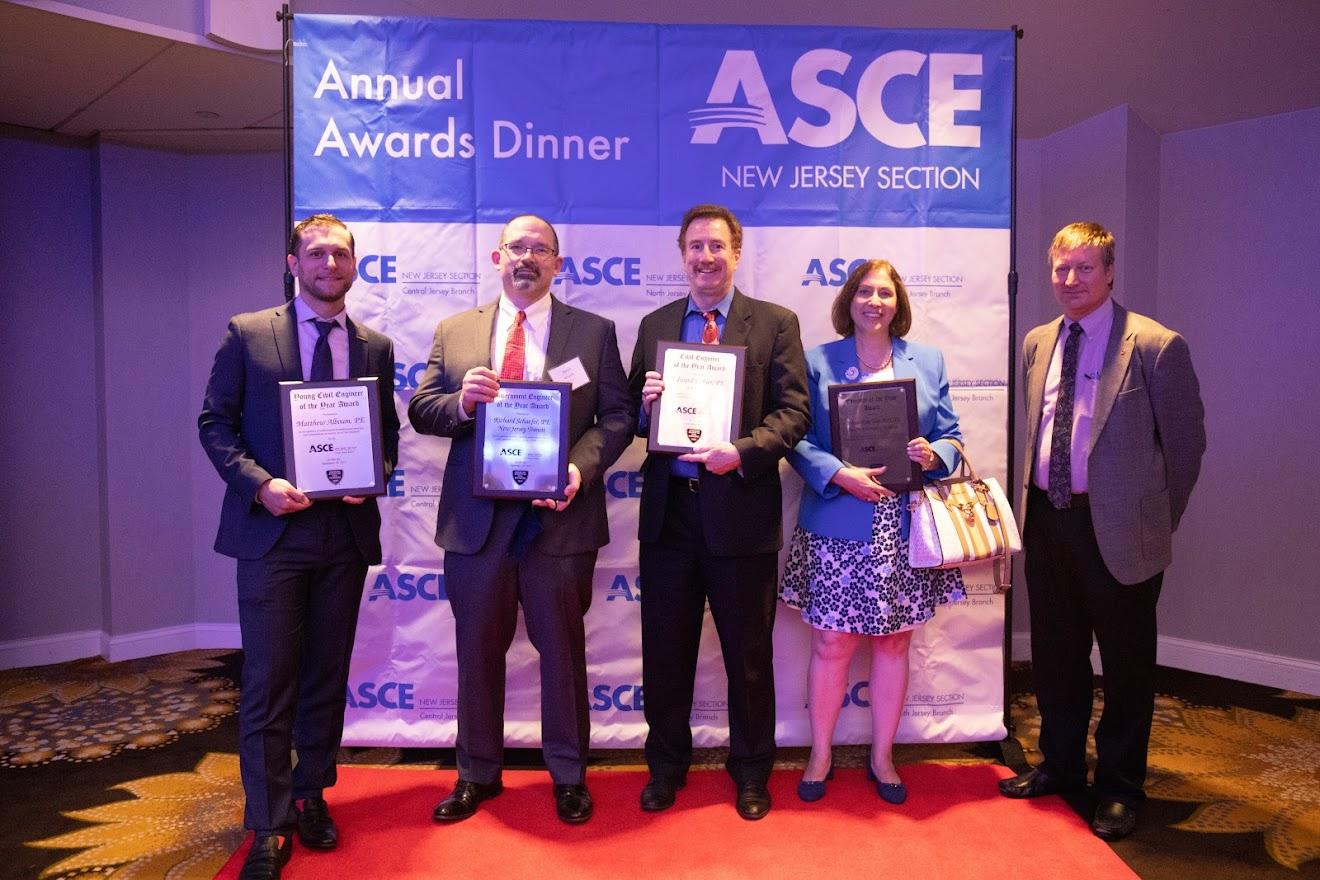Hillier College Faculty Recognized for Excellence in Research and Education

The New Jersey Institute of Technology is known for its distinguished and highly skilled research faculty. Many of these faculty have their home in the Hillier College of Architecture and Design. Several faculty in the community have recently been recognized both outside and inside the university for their accomplishments.
Gabrielle Esperdy, recently named Editor in Chief for the Society of Architectural Historians Buildings of the United States (BUS) book series and SAH Archipedia was awarded the Overseers Excellence in Research Prize and Medal. Her most recent book, American Autopia, published in 2019 by UVA press, was awarded a J.B. Jackson Book Prize from the Foundation for Landscape Studies.
Rima Taher, PhD, PE received an award from the New Jersey Section of the American Society of Civil Engineers as the 2021 Educator of the Year. Dr. Taher received the prestigious ASCE award at the annual awards dinner and ceremony of the ASCE – North Jersey Branch on September 30th which celebrated achievements in civil engineering this year. Three other awards were given in this ceremony for Civil Engineer of the Year, Government Engineer of the Year and Young Civil Engineer of the Year. Taher has a long track record of recognition and awards which includes a university teaching excellence award from NJIT back in 1999. This latest award follows the publication of several books that Taher authored and co-authored on topics related to structural technology and building design for wind forces. Known for her great courses in structures, Taher teaches architecture and civil engineering students about structural building design.

Georgeen Theodore, Coordinator for the Master in Urban Design program, founder and partner at Interboro recently co-chaired the American Institute of the AIA/ACSA 2021 Intersections Research Conference on Communities, received the NJIT Excellence in Teaching Award this fall, and was recognized in the category of Graduate Instruction by Tenured/Tenure Track Faculty. Co-Author of The Arsenal of Exclusion & Inclusion, her firm was awarded a Rebuild by Design project funded by HUD and was recently the lead planning consultant on the Campau-Davison-Banglatown neighborhood framework plan in Detroit. Theodore is currently working on at least two research projects: one on sound pollution and health that was awarded a New York Council on the Arts grant in the Architecture + Design category for 2021, and ongoing research on aging in place, and specifically, naturally occurring retirement communities, (NORC’s), as published in Omnibus.

Anthony (Tony) Schuman has been staying busy and in demand as always, in addition to being recognized by the university as a Master Teacher. While on sabbatical in 2020-2021, Schuman served as lead coordinator of the Newark Design Collaborative, directing a student research team looking at models of university/community engagement in design under Hillier College's new Seed Grant program. Schuman also serves as Board Chair of Lincoln Park Coast Cultural District, Inc, a local community development corporation. There he is instrumental in the organization's current project to construct 60-units of housing plus ground floor commercial behind a historic church facade. Schuman reports that working in a joint venture with a private developer has been an important learning experience.
John Cays, author of An Environmental Life Cycle Approach to Design organized and hosted the first annual symposium on the same topic was recently awarded the Education LCA Leadership award. Cays is a driving force in integrating LCA and design. Through his position as the Associate Dean at the Hillier College of Architecture and Design, John is pushing to integrate LCA into the design practices of architecture students, interior design students, and industrial design students. He accomplishes this by giving guest lectures to classes across all levels and disciplines, mentoring students through independent studies on the topic, and working with studio instructors to integrate LCA thinking and tools into ongoing studio projects.